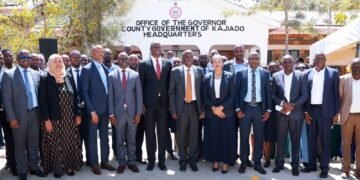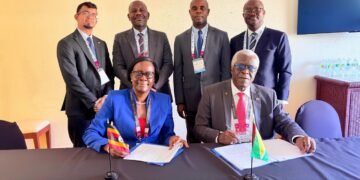The Managing Director of the Niger-Delta Power Holding Company (NDPHC), Chiedu Ugbo, has assured Nigerians a reliable and cost-effective supply of electricity to industrial clusters and homes across Nigeria.
Speaking at the NDPHC/Agbara Industries Bilateral Energy Sales Road Show in Agbara, Ogun State, Ugbo emphasized the primary goal of the initiative, which is to ensure consistent, reliable, and cost-effective electricity supply from NDPHC’s power plants to industrial and business clusters not only in Agbara but throughout the country.
“The primary objective of this initiative is to ensure a consistent, reliable, and cost-effective supply of electricity from our power plants to the extensive industrial and business clusters in Agbara and throughout Nigeria.
“This event, under the esteemed leadership of His Excellency, the Vice President and Chairman of Niger Delta Power Holding Company, signifies the unwavering commitment and preparedness of NDPHC in strategic collaboration with our esteemed partners, to undertake bilateral electricity sales to end-users.”
NDPHC, a government-owned company responsible for implementing the National Integrated Power Project (NIPP), has already constructed eight power plants with a combined capacity of approximately 4000 MW, along with various transmission and distribution infrastructure.
However, a significant portion of this capacity remains untapped due to various constraints.
To address these challenges, NDPHC is exploring bilateral electricity sales and other innovative solutions, working closely with its partners to enhance electricity access for Nigerian homes and businesses, while reducing the financial burden on the Federal Government’s balance sheet.
NDPHC’s commitment to this project signifies a major step forward in addressing power supply challenges and fostering industrial and economic development in Nigeria.
While acknowledging the challenges ahead, Chiedu Ugbo affirms NDPHC’s unwavering commitment to the successful execution of the project, recognizing its potential to significantly impact Nigeria’s industrial and economic development, ultimately benefiting the Nigerian people.






























































